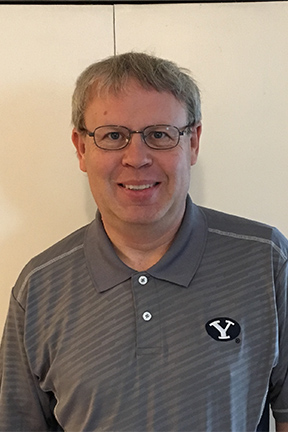Candidate Statement: Eric G. Hintz

Nominated Office: Nominating Committee
Affiliation: Brigham Young University
Position/title: Associate Professor
PhD institution: Brigham Young University (1995)
Areas of scientific interest:
This is a very difficult question in many ways. I started out in pulsation variable stars as an undergraduate at Case Western Reserve University and had planned to continue that type work in graduate school. However, I worked with a new faculty member when I got to graduate school who worked on voids and large scale structure. My current work has moved back more towards variable stars with again a wide range of targets. I work on delta Scuti, Cepheids, transiting planets, HMXB, and other variable emission line stars. Even while working on these primary targets I still get pulled back into extra galactic work on variable AGN's and other related projects. Clearly I have a tendency to chase anything that varies in brightness. Beyond my traditional astronomy research I also work on a number of projects related to Astronomy Education. I am most interested in the effective use of a planetarium in teaching. This led to two primary projects; 1) effective ways of teaching constellation plus what students already know before coming to class, and 2) accommodation of deaf students in a planetarium using head-mounted displays.
AAS positions & dates:
- AAS Agent (2013 - present)
Other relevant positions and experience:
- American Association of Physics Teachers - Space Science and Astronomy Committee (2010-2012)
Candidate Statement:In many cases being a jack-of-all-trades isn't a desirable title and clearly from my wide research interests that title might apply to me. However, I think when it comes to a position on the nominating committee those wide interests will serve me well. Working in distinctly different areas of astronomical research and in astronomy education research gives be a wide view of the astronomical community. It gives me the ability to see the big picture and that should help in the process of providing a diverse pool of candidates so that all view points can be represented. My goal would be that everyone would feel represented by the candidates the nominating committee would put forth. It is not that everyone gets everything that they want, but that they always feel their voice was heard. I want us to be able to all stand behind our AAS President (and other officers).
An experience from my undergraduate days will help me again be inclusive. At Case Western Reserve University there were separate Physics and Astronomy departments. I did a strange thing by double majoring. This led to me being a bit of an outcast in both departments. To the physicists I was an astronomer. To the astronomers I was a physicist. I never felt fully accepted by either side. I really don't want anyone to be compartmentalized in that way.
At BYU we have a long tradition of working with undergraduate research students throughout our entire department. I have been bringing undergraduates to present at AAS meetings for many years. Therefore I have a strong commitment to making sure that choices that are made by the society will not adversely impact the students. As is often said during the undergraduate opening social, they are the future of the society. I've been very impressed over the last few years with efforts to make the AAS meeting an even better experience for students.
Finally, my education research has really opened by eyes to needs that exist in taking science to a broader audience. I learned so much from the deaf members of our research team. It taught me to always take a step back and look at things as others see them. At times during our project we would think we knew what people needed, only to find out we were completely wrong. We learned to ask what someone needed, not try to tell them what they needed. I hope to bring all that I learned to this position.

